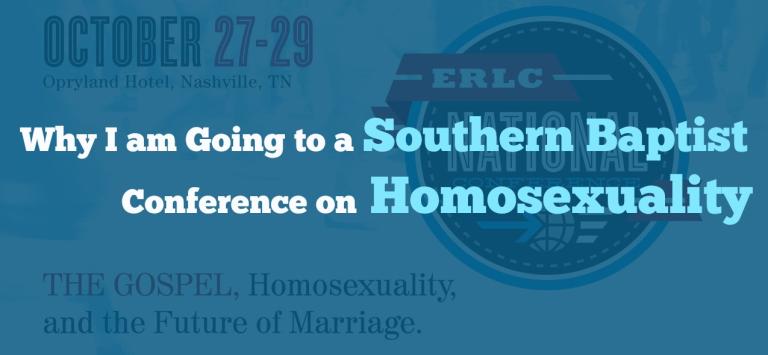Over the past four years of my blogging career, I’ve probably addressed the question “What makes someone a Christian?” about twenty times. You would  think that this would be one of the most basic (and most important) questions for Christians to be unified on, but like most matters relating to Christianity, things are never what they seem they should be. Yet throughout my interactions with other Christians online, I continue to find it necessary to stop and reaffirm what we’re talking about when we talk about being a Christian.
think that this would be one of the most basic (and most important) questions for Christians to be unified on, but like most matters relating to Christianity, things are never what they seem they should be. Yet throughout my interactions with other Christians online, I continue to find it necessary to stop and reaffirm what we’re talking about when we talk about being a Christian.
By way of example, I was having a “conversation” on Twitter earlier today with someone who claimed I was a “liberal”- something I find incredibly ironic, since any liberal will tell you that I most certainly don’t fit that bill. As I attempted to engage the tweeter in dialogue, they quickly turned from calling me “liberal” to saying I wasn’t a “Christian”. What a big jump, eh?
What was their reasoning for this claim? A post I had written (and retracted) about the possibility that premarital sex may not be sinful. Now, no matter what you might think about that question, the fact is that sexual ethics do not determine our standing in Christianity. Questions of sexual ethics are vitally important and potentially may have severe consequences. But they do not make someone a Christian or not. Of course, the tweeter disagreed. They citied 1 Corinthians 6:9-11, Romans 1:32, and Isaiah 50:20-21, all passages which speak of God’s judgment on those who continue to live in step with the sinful rhythms of the Kingdom of the world. From a very conservative perspective, I understand the notion. If you sin, you will not be saved.
The problem is, when we place this concept in the broader message of the Gospel and the whole council of Scripture, we find that this belief doesn’t hold up. The fact that a Christian still sins, or a Christian believes a wrong doctrine, or a Christian supports a wrong ethic, doesn’t mean that the person ceases to be a Christian. If it did, then it would not be possible to say that anyone on the planet was a Christian. Instead, it is clear that the Apostle Paul is speaking of those who willfully reject the Christian faith and chose to live in a hedonistic, self-worshipping manner. I completely agree, of course. If you chose not to be a Christian, then you’re not a Christian. But if you chose to follow Jesus and you mess up, get confused, or sin, that doesn’t invalidate your identity as a Christian. In fact, it confirms it.
So then, what makes someone a Christian? Or another way of asking this could be: what must someone do to be “saved” or made a citizen of the Kingdom of God? There are many complex theological answers that I have heard given over my years of studying theology. Some would say that adherence to the Creeds is the determining factor of someone’s Christian faith. I understand that. Others say that praying a prayer and asking Jesus into your heart is what makes you a Christian. I also get that. Still others will say that the decision was determined by God in eternity past when God chose a remnant from humanity of those who would be Christians. While I disagree, I understand this as well.
But I think the answer is much simpler. In fact, I know it’s much simpler. I know because Jesus answered this question directly and clearly a number of times throughout the Gospel accounts. When asked, “what must I do to obtain eternal life?” Jesus responded, “Obey the law, give generously to the poor, and follow me.” (My paraphrase of Matthew 19:16-22)
Seems simple enough, eh? To be a Christian, to be saved, to have eternal live, to participate in the Kingdom is to obey and follow Jesus.
Wait a second. Isn’t that a Gospel of works? What about faith alone? What about what the Apostle Paul teaches?
Good question.
No, this is not a Gospel of works, because such a notion is absurd. The Gospel cannot be of works or of faith. The Gospel is the message that Jesus Christ is Lord. The Gospel is the proclamation that the Kingdom of God is in our midst, and that God has invited us to live our lives as citizens of this Kingdom. That’s the news. Now, the “salvific” part comes in how we respond to that news. Our response to the news is also not “of works” or “of faith”. Instead, it’s both. The response that makes someone a Christian is one of believing that the Gospel is actually true and responding to it by living our lives in the rhythm of the Kingdom of God. In other words, the “faith alone” that the Apostle Paul talks about is clearly a combination of believing the message (and by default, the messenger) and responding to it’s implications.
In other words, believing isn’t what makes someone a Christian. Nor is doing good works. Either one of those things, on their own, fall short. Why? Because if you simply believe in Jesus and the Gospel, but don’t actually obey Jesus and the Gospel, then you don’t actually believe Jesus and the Gospel. Do you see what I mean? Because if you believed that this was real you would change your life. On the other hand, tons of people around the world live moral lives. There are all sorts of motivations to do good things. But unless you’re motivation is coming from a desire to follow Jesus, then you’re not a Christian. That component of believing is essential. But so is the component of doing. It seems clear that this is what Jesus said. And it also squares with the teachings of the Apostles.
So, in summary, what is it that makes someone a Christian? Believing in Jesus and his Gospel and responding to it by our best attempts at obedience. So long as we desire to follow Jesus, we’re Christians. We will all fall short of being obedient. We will all believe wrong things. That’s okay. That’s what Grace is for. But none of those things invalidate our standing as Christians. Only a rejection of Christ could do that.
I fear that we have made salvation such an abstract concept. It’s something that comes and goes. It’s something you can never be quite sure of. You may be in today and out tomorrow. You may think you’re a Christian but you’re actually not. You feel like you have to ask Jesus into your heart every night to make sure it “sticks”. You believe that if you ask one wrong question or embrace a doubt that you will invalidate your faith. All of these things are simply untrue. And they torment so many Christians who constantly worry about their standing before God.
Friend, hear me. If you believe in Jesus and his Gospel of the Kingdom and try to live in active obedience to the way of Jesus, then you are a Christian. Period. If you don’t believe that Jesus’ words or way is true, then you’re not a Christian. If you don’t strive obey Jesus words and way, but say you believe in Jesus, then the truth is, you don’t believe in Jesus. If you did, you’d obey him. It’s not a guessing game. It’s not mysterious. It’s really, really simple.
If you believe in Jesus and try to follow him, you’re a Christian
That’s what the Bible says. That’s what the Church has said. That’s what Jesus said.
To be a Christian is to follow Christ
If you do that, you’re in.
Any other standard, bar, or definition seems to me to be missing the point. It’s attempting to shut the door of the Kingdom on all those who think differently, act differently, or believe differently. But within the Body of Christ, there is room for great diversity. There always has been and always will be. Christians will disagree about social stances. And that’s okay. Christians will disagree about theology. That’s to be expected. Because within the community of those who believe in and seek to follow Jesus, thee are different perspectives, ideas, experiences, backgrounds, and cultural ideologies. We’re going to see things differently.
But as Jesus and the Apostles stressed, we must seek unity in the midst of that diversity. We must not try to exclude people from “salvation” because we don’t agree with their stance on a particular issue. That’s not the way of Jesus.
Just my thoughts. Would love to hear what you think!














